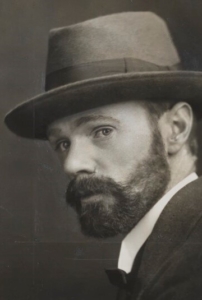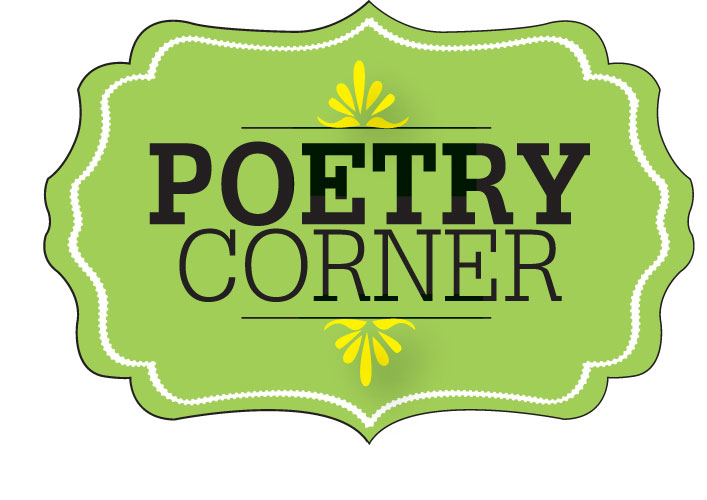By Norah Christianson
Piano

By D.H. Lawrence
Softly, in the dusk, a woman is singing to me;
Taking me back down the vista of years, till I see
A child sitting under the piano, in the boom of the tingling strings
And pressing the small, poised feet of a mother who smiles as she sings.
In spite of myself, the insidious mastery of song
Betrays me back, till the heart of me weeps to belong
To the old Sunday evenings at home, with winter outside
And hymns in the cosy parlour, the tinkling piano our guide.
So now it is vain for the singer to burst into clamour
With the great black piano appassionato. The glamour
Of childish days is upon me, my manhood is cast
Down in the flood of remembrance, I weep like a child for the past.
D.H. Lawrence was born in 1885, in Eastwood, United Kingdom. His father was a coal miner and Lawrence grew up in a working class neighborhood. Lawrence went on to become a novelist, poet, and short story writer. He wrote about the “dark gods” of nature: feeling, instinct, and sexuality. Most people know of Lawrence’s book “Lady Chatterley’s Lover” because it was banned and went on trial for obscenity. Because of its literary merit the book was found, in 1960, to be not obscene, and the publisher, “Penguin Books, Ltd, “Not guilty.
Three other books of his were also banned. These bans kept Lawrence in perpetual poverty. Also, because he married Frieda, a German woman, and because he had open contempt for militarism, he was viewed with suspicion and lived in near-destitution during wartime Britain. The couple was also accused of spying and signaling to German submarines. All untrue, of course. The military prosecution is understood to have been punishment for his novels’ “obscenity.”
“Piano” is a lovely, simple poem about music bringing back the memory of the poet as a child sitting under the piano and pressing his mother’s feet. Simple. Simple. But, besides being written by an Englishman, it was written in 1913, so a few words need to be explained. Insidious meant, at the time, “having a gradual subtle cumulative effect.” Clamour meant “loud and insistent.” Glamour meant “an illusory and romantic attractiveness.” Appassionato is a music term for “impassioned, deeply emotional.” (It’s interesting to me that Lawrence did not title the poem “The Piano,” but “Piano,” the music term for “softly.”)
According to research by Amy Belfi and others, music, more than any other stimulus, has the special ability to trigger intense recollections from years past.
I hear the folksong “Shenandoah,” and I remember my father standing alone in the kitchen, shoulders hunched, playing that song on his harmonica. I hear The Troggs sing “Wild Thing”, and I see my young brother in his room listening over and over to that song while he packs his bag to set off for boot camp—Fort Jackson. And yes, our songs make us “…weep like a child for the past.” But we weep in longing, not despair. Our memories are who we are. They are our own personal witness of our having lived a life.


Thank you for this lovely selection and the important framing you do.